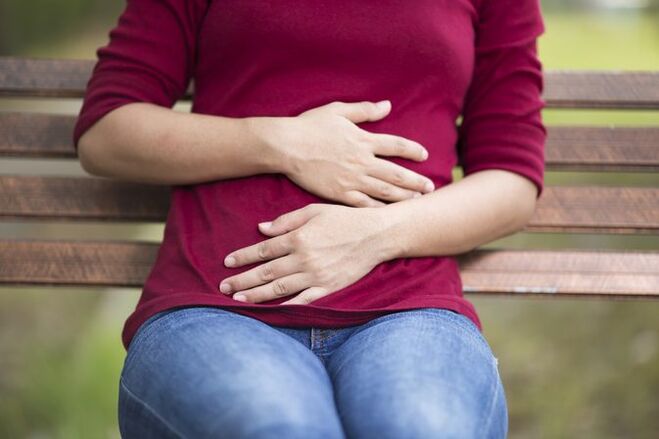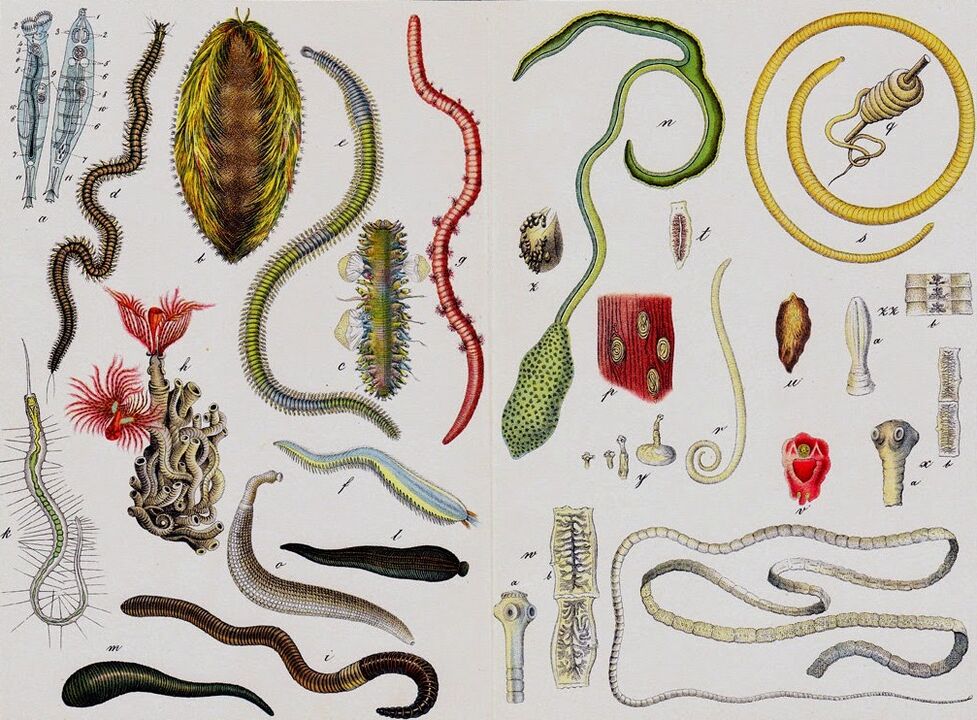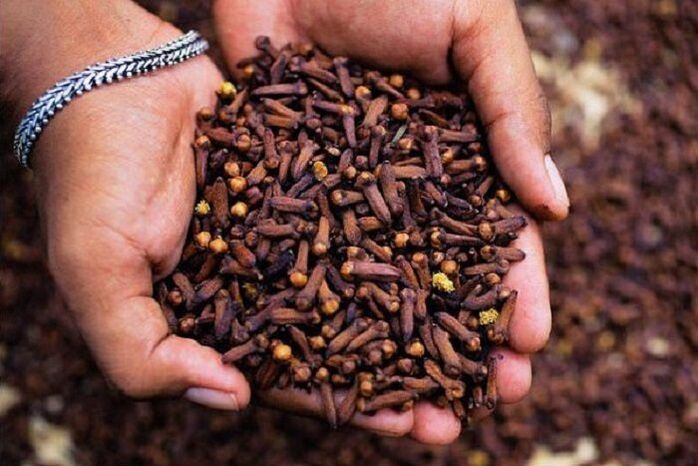In the body of an adult live different microscopic coexistence. Most of them are useful and are our symbionts. These include about 500 species of bacteria that live in the intestines. However, many life forms that enter the human body begin to parasitize and poison the health of the host.
One type of unwanted neighbors are worms. They are parasitic worms that infect the intestines, liver, lungs and, rarely, muscles. All types of parasitic worms are grouped under the name of helminths, and the infection with them is helminthiasis.
To answer the question of how to treat worms, it is necessary to understand how they enter the human body. There are main ways of infection:
- Through the soil when infected with worms that spend part of their life on earth. Their eggs or larvae fall on the vegetables and fruits eaten later in the development process. Animals infected with helminths through the soil then transmit them to humans.
- When in contact with an infected person. Larvae can be spread through bedding, towels and other items used by an infected patient. According to statistics, helminths are present in 60% of the population, and migrants of Asian origin are a special risk group.
- By eating contaminated meat or fish. Eggs and larvae of worms are destroyed when exposed to high temperatures for a long time.
- Sometimes insect bites can cause infection.
Once in the human body, the worms actively multiply and release toxic waste products. Their accumulation and increase in number increases the symptoms of fatigue. To get rid of the parasite, you need to see a doctor and undergo a course of treatment.
Signs of worm infection in adults

The presence of parasites in the organs can be determined by external signs. These include skin manifestations that significantly worsen its condition and cause itching. For example, inflammation, acne, cracked heels, stratification of nails.
Infection with worms has symptoms similar to other diseases. The intensity of various manifestations depends on the location of the helminth. In addition to skin rashes, intestinal diseases are characteristic:
- unstable stools;
- specific odor in the mouth, increased gas formation;
- nausea;
- itching in the anus;
- weight loss with a parallel increase in appetite.
Parasitic toxins also affect the nervous system, causing headaches and nervousness. With a significant increase in the number of helminths, memory problems and depression may appear. Due to the lack of vitamins and essential elements, the immune system is not restored. A person is constantly sick under the influence of viruses and bacteria. If the respiratory system is affected, coughing and choking attacks may occur.
If you find these symptoms, you should consult a doctor. The specialist will use the test results and a thorough examination to determine the form of the parasite and prescribe medication.
Types of helminths that parasitize the human body

Treatment of the disease depends on the type of parasite that lives in the internal organs. Different worms affect certain tissues and cause specific symptoms.
The main forms of infection by parasitic worms are distinguished:
- Enterobiasis occurs under the influence of pinworms. Small round organisms are localized in the intestines and cause severe itching of the skin of the anus.
- Trichinella penetrates the muscles through the vascular system. Symptoms appear sharp and unexpected in the form of fever, fever, swelling of the eyelids and face.
- Vlasoglavy belongs to nematodes and affects the large intestine. Symptoms of the disease are mild or absent. There may be dizziness, abdominal pain, inflammation of the appendix.
- Defeat of different types of tapeworms. These include cattle strips, broad worms, and pork ribbons. Parasites live in the intestines, are different in the body like a ribbon, and are divided into many small parts. Symptoms include dizziness, abdominal pain, and fecal incontinence.
Most of these forms of invasion are caused by poor personal hygiene, eating poorly fried meat. Pets are also a source of parasites.
If the patient shows signs of worm infection, the doctor confirms the diagnosis with the help of laboratory tests. Feces are often examined for helminth eggs and an enzyme immunoassay is performed. In addition, anus, endoscopy, and ultrasound fragments can be studied.
Medications needed to treat worms
If helminths are found in the human body, the doctor prescribes medication. Many resort to traditional medicine to get rid of the disease. It is possible to use a combination therapy, but its effectiveness will be monitored by a specialist.
The presence of worms in the internal organs is not a dangerous diagnosis if the disease is detected in time and a course of medication is prescribed. Their effect will be aimed at destroying the parasite that poisons the body of the infected person. After the removal of helminths and their metabolic products, human health is restored.
Due to the need to suppress the parasite, the drugs will contain components that affect the ability to absorb nutrients. Lack of nutrition and reproductive conditions will lead to the death of worms.
According to the type of effect on worms, drugs are divided into the following types:
- The active ingredients block the nervous and muscular systems of worms. They develop paralysis, are unable to adhere to the intestinal walls and are excreted from the body.
- The drug interferes with the oxidation of glucose in the body of the parasite, which leads to their death.
- Drugs that inhibit cell tubulin and ATP synthesis.
- Drugs that affect the intestinal system of helminths.
- Components that destroy the bark of worms. They are exposed to calcium and are digested by the human intestinal system.
There are drugs that have a broad effect and are aimed at certain types of helminths. The choice of medication is made by the doctor based on tests, severity of symptoms and method of treatment. In addition, there are possible contraindications to the use of the drug.
In addition, drugs are prescribed to eliminate the manifestations of allergic reactions to parasitic toxins. Taking these pills reduces the level of poisoning of worms with waste products and relieves the symptoms of the disease. Auxiliary components are used individually for a complex course of helminthiasis.
Atypical methods of treatment of helminthiasis

The use of drugs is especially effective in the fight against worms. The only drawback of drugs is their contraindications. Non-drug treatments are used for such conditions:
- Ayurveda;
- exposure to oxygen;
- alcohol treatment.
The system of Indian medicine in Ayurveda raises the overall tone of the body, restores vitality and helps fight helminths. According to this teaching, the cause of worm infections is a lack of personal hygiene and purity of thought. Special exercises and laxative decoctions are used to maintain health. Herbs combined with hot spices cleanse the body of toxins. Thyme, wormwood, St. John's wort are used successfully with a break in the course for a week.
The essence of oxygen therapy is to saturate the cells of the gastrointestinal tract with appropriate gas. To do this, a tube is inserted into the esophagus and oxygen is injected from there. The procedure is repeated for several days. Ozone therapy is also used to kill worms. In this way, the tube is inserted into the anus. Ozone-oxygen mixture is given through it, it paralyzes helminths. Olive oil and ozone are sometimes used.
Alcohol is used as part of treatment. Cognac and tea are mixed in equal amounts, then drunk on an empty stomach with a laxative. Cognac is used as an independent medicine, one tablespoon in five days. Vodka infusion with garlic for 10 days destroys helminths.
Traditional medicine in the treatment of worms

The variety of folk remedies allows you to choose the best for each case of infection. Natural components that affect parasites include:
- Pumpkin and flax seeds are combined with laxative decoctions.
- Wormwood, pomegranate infusions.
- Phytoncides of garlic and onion.
- Ginger root with sugar.
- Dried cloves seeds are ground in a coffee grinder.
- Enemas with castor oil and soda.
The choice of recipe depends on what kind of helminths live in the body. Based on the test results, the parasitologist will select the optimal combination of different treatments.
Ways to prevent infection with worms
Health protection is possible in all cases by following the rules of personal hygiene. Hands should be washed with soap and water after visiting public places and traveling on public transport. It is necessary to control the cleanliness of underwear and prevent the accumulation of dirt under the nails.

Pets should be dewormed every six months. It is important to clean the surface of the hands with antibacterial soap after contact with stray dogs and cats.
Vegetables, fruits and greens should be thoroughly washed and eaten. Meat and fish should be treated at high temperature for at least 40 minutes.
Following these recommendations will help prevent infection and subsequent treatment.



























